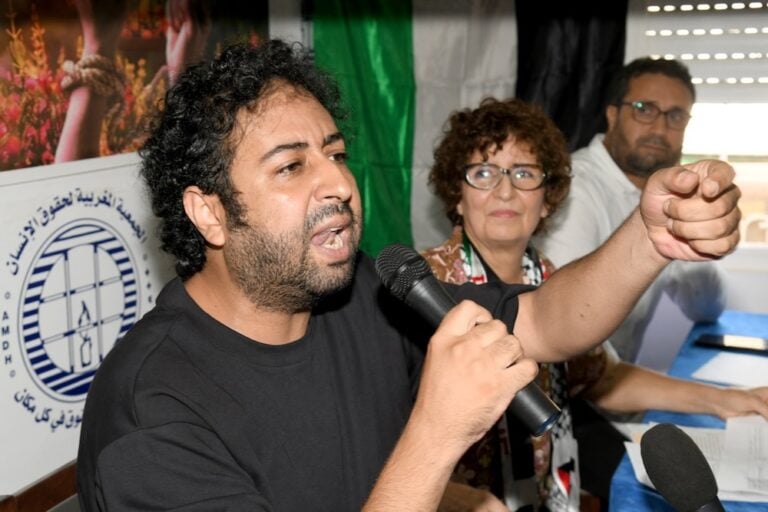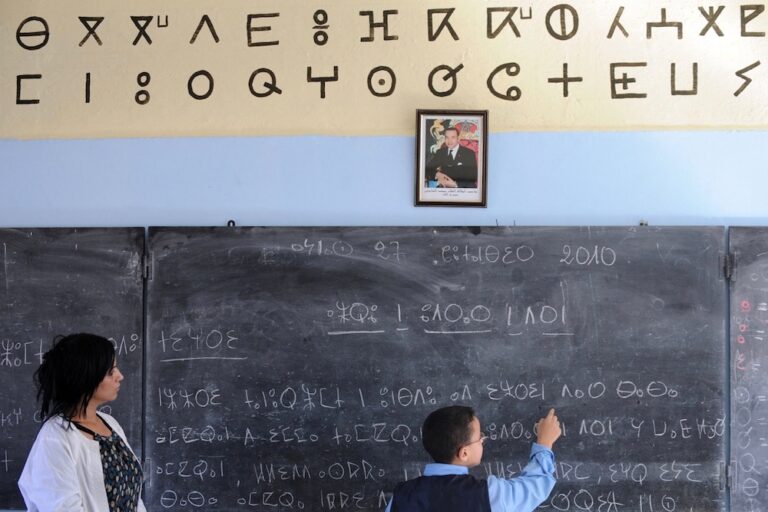(RSF/IFEX) – In a letter to Prime Minister Abderrahmane Youssoufi, RSF emphatically denounced the Ministry of Culture and Communications’ withdrawal of Claude Juvénal’s accreditation. Juvénal is the Agence France Presse (AFP) Rabat bureau chief. RSF Secretary-General Robert Ménard asked the prime minister to “reconsider the decision,” which he described as “intolerable.” The organisation believes that […]
(RSF/IFEX) – In a letter to Prime Minister Abderrahmane Youssoufi, RSF emphatically denounced the Ministry of Culture and Communications’ withdrawal of Claude Juvénal’s accreditation. Juvénal is the Agence France Presse (AFP) Rabat bureau chief. RSF Secretary-General Robert Ménard asked the prime minister to “reconsider the decision,” which he described as “intolerable.” The organisation believes that this measure characterises “the Moroccan authorities’ growing intolerance of the work of information professionals, and evokes the authoritarian practices which were common during the reign of Hassan II, which we believed to be a thing of the past”. Seven newspapers have been banned and three journalists have been placed under house arrest since 1 January 2000. On 13 October, RSF expressed its “alarm” regarding “the serious deterioration of press freedom in the kingdom”. Ménard deplored the fact that “Morocco has not kept its promises when one considers the many positive signs which had been given since Mohammed VI took the throne.”
According to information collected by RSF, on 4 November, the Ministry of Culture and Communications withdrew Juvénal’s accreditation, without providing him with any explanation. Judging that the journalist had no more reason to stay in Morocco, the Moroccan authorities asked him to leave the country before the evening of Monday 6 November. According to “an authorised source at the Ministry of Culture and Communications” quoted by the MAP (the official Moroccan agency), the Moroccan authorities allegedly accuse the journalist of “straying from the professional code of ethics by taking initiatives which were hostile to Morocco and its institutions”. According to the AFP, the authorities “expressed their displeasure concerning [the agency’s] coverage of Moroccan internal events on several occasions”, notably following the trial of Captain Mustafa Adib, who had denounced acts of corruption within the Moroccan army. On 24 October, Juvénal used a press release of the Moroccan Human Rights Association (AMDH) which implicated Hosni Benslimane, head of the Royal Constabulatory, and Hamidou Laânigri, director of the counter-espionage services (DST), in a scandal. The French agency recalled that “under Hassan II’s reign, two other Rabat-based AFP correspondents, Pierre Doublet and Jean-Marie Wetzel, were also expelled”.
Seven newspapers have been the target of circulation bans by the Moroccan authorities since 1 January, including two French newspapers – “Jeune Afrique – L’intelligent” and “Le Figaro”. From 8 to 10 October, three France 3 journalists – cameraman Joseph Thual, editor Jean-Marc Pitt, and video editor Michel Bernasconi – were placed under house arrest in Errachidia (in Morocco’s east) because they had filmed military installations. A few days earlier, Minister of the Interior Ahmed Midaoui threatened Aboubakr Jamaï, editor of the weekly “Le Journal”.


